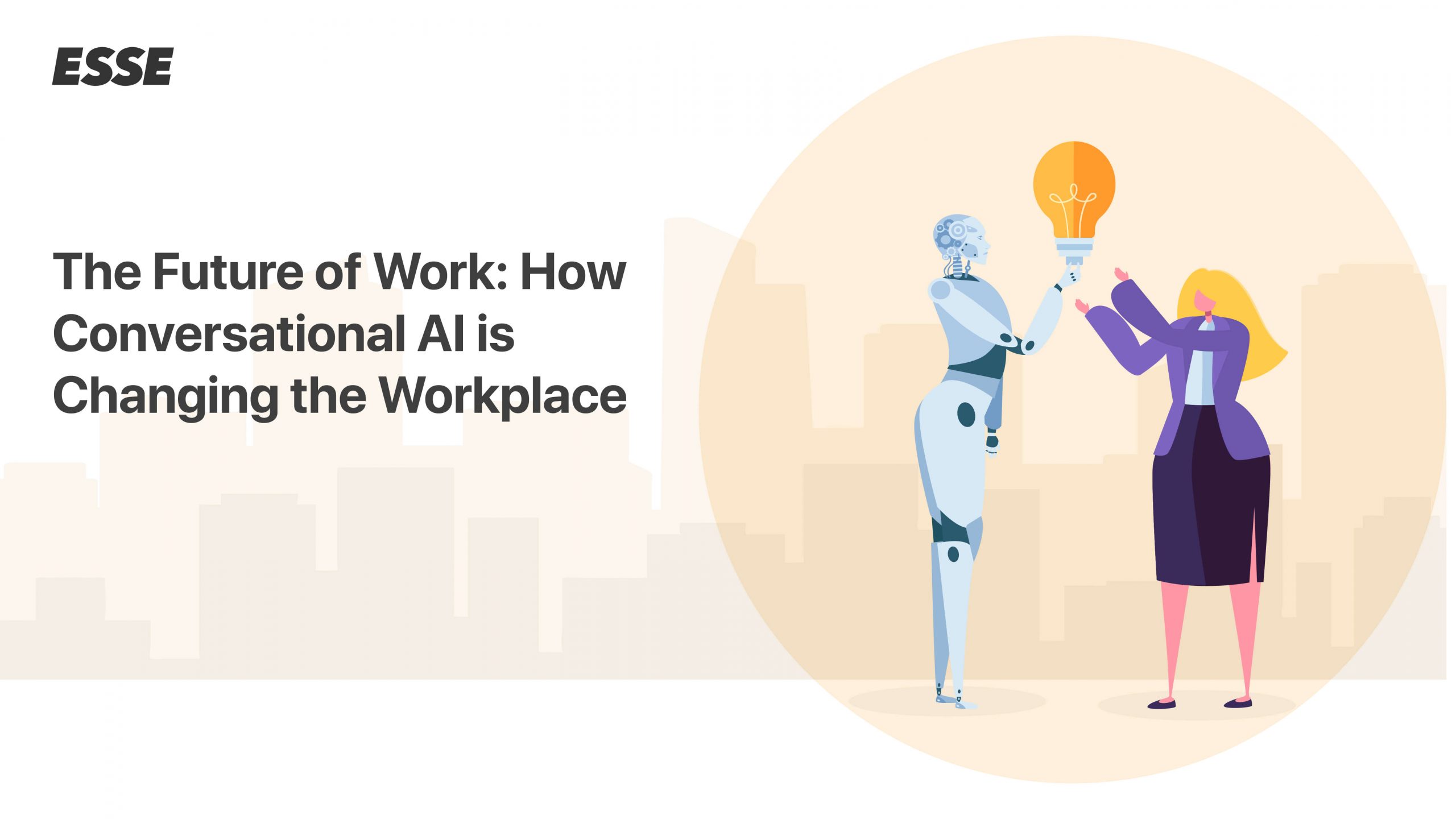The way we work is changing rapidly, and conversational AI is at the forefront of this change. Conversational AI is transforming the workplace, from improving employee productivity and efficiency to enhancing customer engagement and satisfaction. In this blog post, we will explore how conversational AI is changing the workplace and what the future of work might look like.
Improved Employee Productivity and Efficiency
Conversational AI can help employees work more efficiently by automating routine tasks and providing instant access to information. Conversational AI chatbots like Esse AI can handle tasks such as scheduling appointments, answering frequently asked questions, and providing information about company policies and procedures. This frees up employees to focus on more complex tasks that require human skills like problem-solving, creativity, and empathy. Conversational AI can also improve employee productivity by providing real-time feedback and coaching, helping employees learn and develop new skills.
Enhanced Customer Engagement and Satisfaction
Conversational AI is also transforming the way companies engage with customers, providing a more personalized and efficient experience. Conversational AI chatbots like Esse AI can handle customer queries and provide instant responses, improving response times and reducing wait times. Conversational AI can also provide personalized recommendations and offers, increasing customer satisfaction and loyalty. Conversational AI can be used across various channels, including social media, email, and messaging platforms, providing customers with a seamless and consistent experience across all touchpoints.
New Job Roles and Skill Sets
As conversational AI becomes more prevalent in the workplace, new job roles and skill sets will emerge. Companies will need employees who can develop, implement, and manage conversational AI solutions. These employees will need to have a deep understanding of natural language processing, machine learning, and data analytics. They will also need to have strong communication skills and be able to collaborate with other teams to ensure that conversational AI solutions are aligned with the company’s overall strategy.
The Future of Work
The future of work will be characterized by increased automation, flexibility, and remote work. Conversational AI will play a crucial role in this future, helping companies automate routine tasks, improve productivity, and enhance customer engagement. However, the future of work will also require new skills and competencies, as well as a new approach to workforce management. Companies will need to invest in employee training and development to ensure that their employees have the skills and knowledge required to work in a rapidly changing environment.
In conclusion, conversational AI is transforming the workplace, from improving employee productivity and efficiency to enhancing customer engagement and satisfaction. As the use of conversational AI continues to grow, new job roles and skill sets will emerge, and companies will need to adapt to this new reality. The future of work will be characterized by increased automation, flexibility, and remote work, and conversational AI will play a crucial role in this future. By embracing conversational AI, companies can stay ahead of the curve and gain a competitive advantage in the marketplace.
Want to learn how conversational AI can transform your workplace and enhance your customer engagement? Try Esse AI today! Our advanced natural language processing skills and intelligent self-learning capabilities can help you automate routine tasks, improve employee productivity, and provide a more personalized experience to your customers. Contact us now to learn more about our conversational AI solutions and how they can help you stay ahead of the curve in the rapidly changing workplace.


Leave a Reply